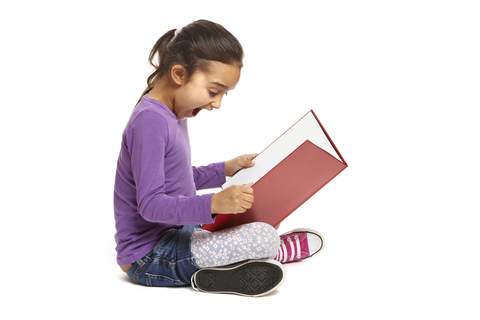I believe that young people today are much the same as they always have been, however in this modern computer and Internet driven society, they have a broad range of leisure pastimes to choose from which weren’t available to the kids of the past. Think of it: videogames, touch screens, multimedia based learning activities, and the wealth of information and applications on the Internet are consulted by kids for pleasure, or as supplements to their learning. Books and their narratives must compete for attention in this context of information saturation. This environment doesn’t necessarily mean children won’t be interested in reading, but it’s important for parents and teachers to ensure that children make space for reading at School and in their lives, and that they grow up in an environment which promotes reading as a generally pleasurable or exciting activity.
Frequent reading benefits people in many ways. Perhaps the most obvious one is that it contributes to a person’s knowledge of language, and how to use it, as well as their knowledge on specific topics. It has also been shown to increase people’s capacity for empathy with regard to others, and that readers often have an advantage over non-readers in academic and professional contexts. Reading for pleasure strengthens cognitive stamina and builds up resistance against cognitive decline (Merga, 2015).
However, some School children find reading in general a chore, and will do almost anything to avoid it. How can we make reading fun and exciting for young people, so that they won’t become reluctant readers? That is the question.
First and foremost, it is important that children be allowed to choose their own books, and read books that aren’t necessarily part of their School literacy program. If you are interested in a book or task, you will be motivated to read it, or do it. Allow young people to read a wide range of genres, and don’t restrict their reading to age-appropriate books only, particularly if there is no potentially sensitive or harmful content within. Use libraries, and have conversations with children and librarians about what may be interesting reading for them (Walmsley and Jacobs, 2015; Spencer, 2015). Libraries also have a wide range of activities for children which help them develop a taste for the written word such as author talks by children’s writers, book clubs, and film presentations related to books.
Parents and School Teachers shouldn’t worry too much if the book turns out to be difficult for a particular child. The best solution is to work through it together, and develop strategies to make reading easier. Read and enjoy books with children and teens: take turns reading regularly, and voice the different characters (Spencer, 2015). Make reading an active, rather than a passive pastime – this will sustain your interest and theirs during reading time. It’s also important to help School Pupils and Students develop strategies to find books that will interest them, as well as strategies to help them find information they are looking for to complete a project in an academic context. This is a skill that needs to be taught (Merga, 2015).
Talk about reading with children: why you love or loathe certain characters, alternate endings for fictional narratives, discuss why you both find some books interesting, and others boring, the topics for discussion are endless. We learn behaviour by watching and interacting with others: if School children see their parents and teachers reading and enjoying books, having shelves full of books and borrowing from the local library, they are likely to follow suit. Encourage young people to express their opinions about books on blogs, to write book reports, start discussions with their friends and share their enthusiasm for particular authors, subject matter, and books (Merga, 2015; Mackintosh, 2015).
Take time to learn about the interests of young readers. They may not like reading, but they may like soccer, playing video games, or making models. Find books which are linked to their interests. Children’s author, Tristan Bancks, argues that parents don’t need to worry about introducing kids to “quality literature” – getting them to read anything that sparks their interest is the aim in the beginning. Audio books can be great fun on long car trips, and can encourage kids to read as well (Merga, 2015; Mackintosh, 2015). Above all, parents and School teachers need to be creative, and encourage young people by example to become lifelong readers and learners. It’s certainly true that a book a day keeps boredom away!
Mackintosh, Lachlan. “How do you get kids interested in reading?” Drive radio program with Emma Griffiths and Tristan Bancks. Australian Broadcasting Corporation Brisbane. 26 June,
Merga, Margaret Kristin. “How to get teenagers to read?” The Conversation. June 22, 2015.
Spencer, Ryan. “Ditch the home readers – real books are better for your child.” The Conversation. January 23, 2015.
Walmsley, Hannah with Genevieve Jacobs. “Home readers for school kids often wasted learning opportunity, expert warns.” Australian Broadcasting Corporation News. 29 January, 2015.



